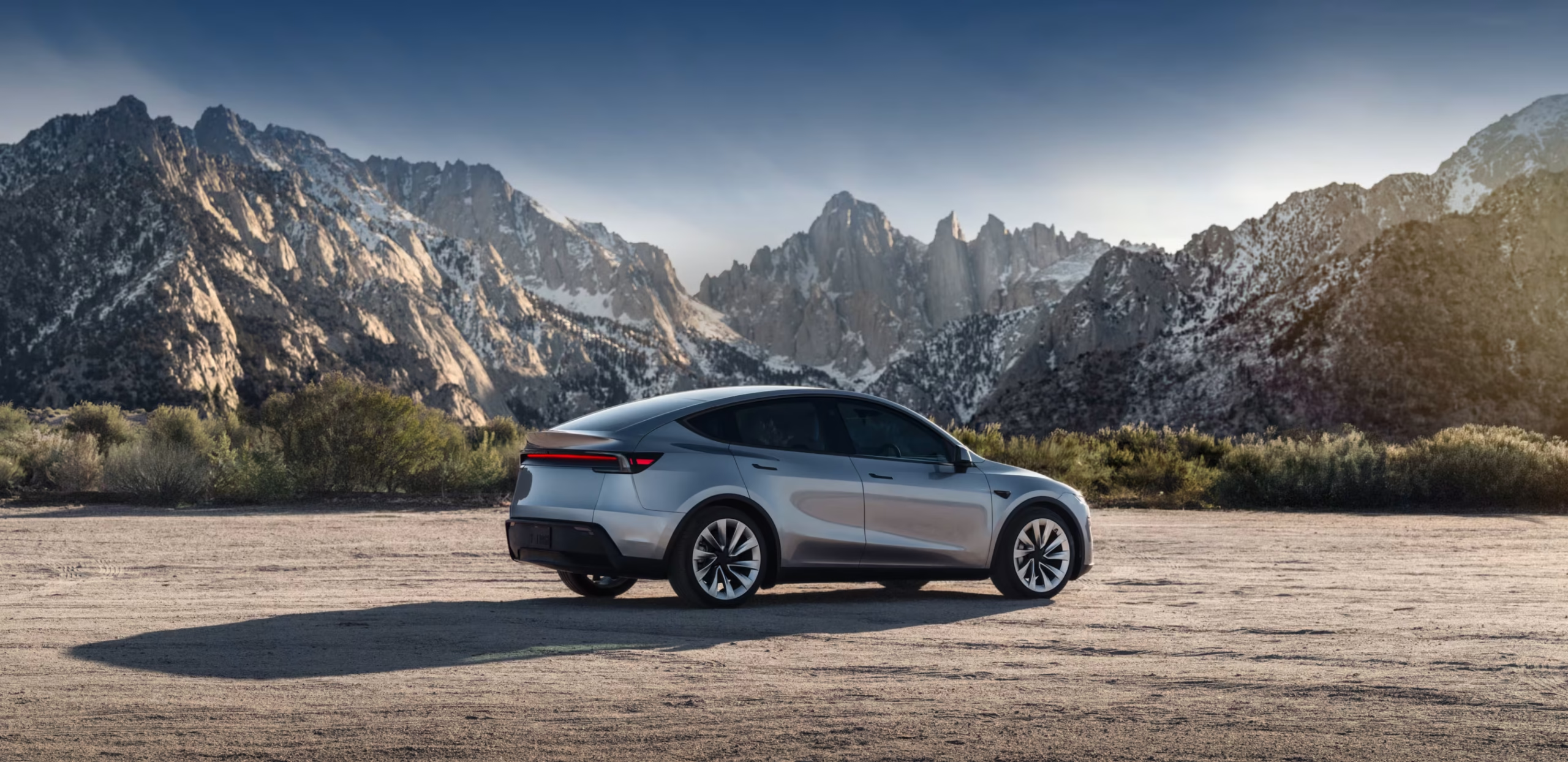Tesla India Entry into India is a significant milestone for the electric vehicle (EV) industry. With the country’s growing interest in EVs, Tesla’s India debut is a pivotal moment for both the company and the market. However, high prices might limit its reach to most Indian consumers.
Tesla has finally rolled into India, and car lovers across the subcontinent are buzzing. On Tuesday, the company flipped the switch on its first-ever showroom, parked in the busy Bandra-Kurla Complex in Mumbai. This spot will be Tesla’s main hangout for customers, letting people see, touch, and test the sleek electric models that have grabbed headlines worldwide.
Still, opening a shiny showroom is only half the story. Sky-high import taxes and a young charging network mean even wealthy buyers will blink at the price tag. So as the glamour fades, Tesla must tackle wallets, infrastructure, and local rulebooks if it truly wants to spark electric travel across the nation.
Tesla India Entry: Tesla Marks Its Historic Debut in India’s EV Market
After years of waiting—and a fair bit of policy tug-of-war—Tesla is finally rolling its cars onto Indian streets. This move into one of the planet’s biggest car markets has drawn plenty of buzz, because the countrys rising middle class looks like a big opportunity for any automaker, and especially for electric vehicles. Teslas brand-new showroom in Mumbai is more than a sales lot; its an experience center meant to teach Indian customers what cutting-edge EV tech really feels like.
Even though Teslas arrival feels like a win for the firm and hints that investors are getting more confident about Indias clean-energy push, a smooth journey is anything but certain. The nations electric vehicle scene is still very young, and Teslas premium prices could put its cars out of reach for most shoppers today. That said, the long-term picture for the company stands to brighten as India steps up its drive for greener, quieter mobility.
Tesla India Entry: Tesla Faces Pricing Hurdles in India’s Budding EV Market
Tesla cars always come with a splashy price tag, and in a market where many buyers keep budgets close to heart, that premium can quickly become a deal-killer. Take the fresh-off-the-line Model Y that the company is rolling out in India: it starts at a staggering 6.78 million rupees, or about $79,089. Because that sticker is far above what the average shopper here spends on a new vehicle, Tesla steps onto a stage dominated by value-packed names like Tata Motors and Mahindra & Mahindra.
For some easy comparison, the entry-level Model Y in the United States lists at roughly $44,990 before any local tax breaks kick in. Jumping back to India, interest in electric wheels is definitely growing, yet last year EVs still accounted for only around 2 percent of all cars sold. Even with the government rolling out incentives and charging plans, Teslas lofty prices are bound to pull attention mainly from affluent buyers who already treat German luxury brands like BMW and Mercedes-Benz as everyday options.
Tesla India Entry: Government’s Push for EV Adoption as a Silver Lining for Tesla
Even with its premium price tags, Tesla is on the Indian government’s radar as the country pushes for cleaner transport. Officials have set an ambitious goal: by 2030, 30 percent of all new cars sold in India should be electric. To help reach that target, the government has rolled out several friendly policies, including lower import duties on EVs costing under $35,000, which opens the door for global brands like Tesla to pilot vehicles here.
That tax break is encouraging, yet Teslas long-term fortunes in India hinge on how well it tunes its operations to local needs. After some back-and-forth, Indian regulators now say they would gladly support a Tesla factory on home soil, a move that could slash costs and let the brand market more wallet-friendly models. The company, however, still hesitates, pointing to steep import tariffs and an unpredictable trade landscape as key reasons it hasnt yet green-lighted local assembly.
A Long Road Ahead: Tesla’s Manufacturing Ambitions and Policy Challenges
While Tesla is starting its India operations by importing vehicles, the company’s long-term plans remain unclear. Initially, India’s government pushed for Tesla to set up manufacturing facilities within the country to help reduce costs and support the broader EV ecosystem. Tesla, however, has yet to make any concrete announcements about local production.
CEO Elon Musk had previously expressed concerns about India’s import taxes, which can double the prices of EVs. However, after meeting with Prime Minister Narendra Modi in February, the Indian government reduced import taxes to 15% for EVs priced below $35,000. This was seen as a significant step toward attracting Tesla and other EV manufacturers to set up shop in India.
Despite these incentives, Tesla’s reluctance to commit to local manufacturing may delay the company’s ability to scale production in India. Additionally, with the ongoing U.S.-India trade negotiations, Tesla’s decision to build a factory in India could have political implications, especially given the current trade tensions between the two countries.
The Competitive Landscape: Tesla Takes on Germany’s Luxury Giants
When Tesla rolls into India, its fiercest rivals probably won-t be local low-cost brands but the high-end names like BMW and Mercedes-Benz. Even though the luxury segment accounts for only about 1 percent of all car sales, these labels already enjoy a loyal following among the country-s wealthier drivers. Teslas cutting-edge electric fleets and promise of zero tailpipe emissions might pull in some eco-friendly buyers, but whether the brand can grab a meaningful slice of this tiny pie is still an open question.
On the upside, Teslas global know-how, from over-the-air upgrades to semi-autonomous driving, gives it a tech edge that legacy luxury firms find hard to match. Still, unless the company nails local assembly and trims costs, it will likely stay a small, status-oriented player in Indias broader automotive scene.
The Future of Tesla in India: A Vision of Clean Mobility
Tesla’s planned roll-out in India is definitely thrilling news for fans, but the company still has plenty of potholes to dodge. Steep price tags, shifting rules, and fierce competition from well-known car makers could slow Tesla’s growth in the near term. On the brighter side, as New Delhi pushes harder for electric cars and consumer interest climbs, the brand could help steer the whole industry toward greener wheels.
If Tesla manages to trim costs-and that usually means local assembly or clever manufacturing-its sleek sedans and trucks could appeal to millions more buyers. Until then, the brand will mainly attract India’s high-income crowd, while budget-friendly EVs keep hitting the roads at a faster pace.
Long-term success comes down to listening to Indian customers, teaming up with trusted suppliers, and riding the government’s clean-energy wave. As the country’s car market reinvent itself, Tesla’s bets today could either power or stall India’s bigger move to electric transport.
Conclusion
Teslas entry into India marks a big milestone for the car maker and shows how keen Indians are becoming about electric wheels. Still, the brand will feel the heat of tough rules, fierce rivals, and wallets that dont open wide for premium cars, so pricing its models right will be mission number one. If the firm sets up local plants and takes advantage of government incentives, producing cheaper cars could tip the balance and leave it steering the nations clean-drive shift. For now it must juggle the high-tech promise of its vehicles with strict budgets and tastes of wealthy city dwellers who expect nothing less than global quality.
Swapnil is a passionate writer who specializes in creating engaging and informative articles. With a knack for storytelling, he covers a wide range of topics, providing readers with valuable insights and fresh perspectives. Whether it's about trends, lifestyle, or creativity, Swapnil's writing aims to educate, inspire, and entertain.


